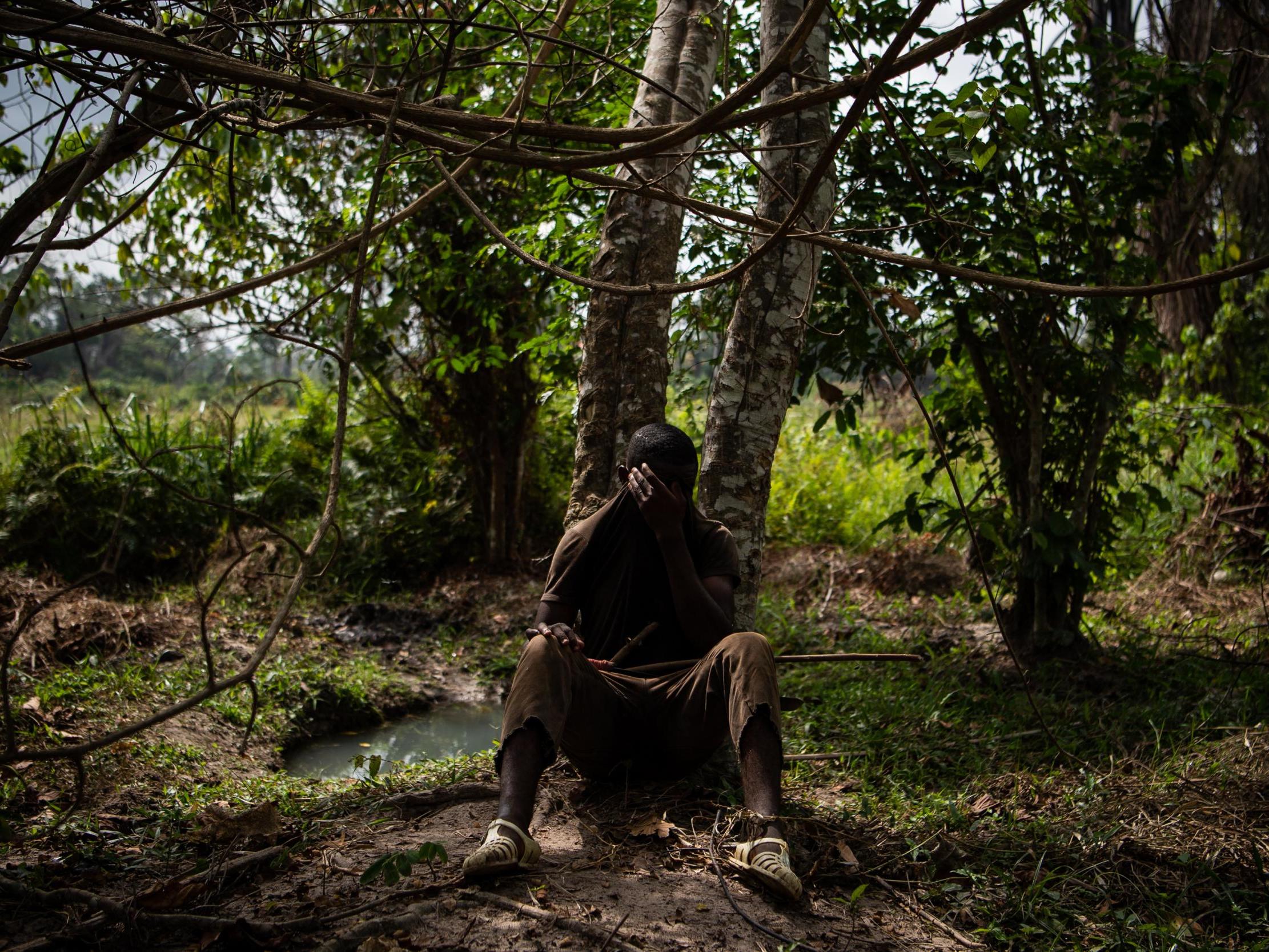US border officials investigating whether to block chocolate imports over child labour fears
It follows a letter from Senators calling for 'aggressive action' to tackle problem

A team from US Customs and Border Protection visited agricultural regions of Ivory Coast last week to begin investigating whether cocoa is produced there with forced or indentured child labour and, if so, whether the US should block cocoa imports.
The investigation follows a July letter from two US senators asking customs officials to issue an order blocking cocoa from Ivory Coast from entering the US unless the shipments are demonstrated to be free of child labour.
The West African nation is the world's largest producer.
Barring Ivory Coast cocoa from reaching the US could have drastic consequences for the world's major chocolate companies - possibly forcing them to abandon their main supply. The measure also likely would extend to any chocolate made with Ivorian cocoa.
Customs officials anticipate taking another trip to Ivory Coast later this year.
"We urge you to take all necessary action to ensure that the US is not complicit in indentured child labour in the cocoa sector," the letter from Senators Sherrod Brown and Ron Wyden said. "The last 20 years demonstrate that the travesty of forced child labour in the global supply chain cannot be solved by chocolate companies' self-regulation."
In calling for "aggressive action" against child labour in West African cocoa imports, the senators' letter cited a June story in The Washington Post that detailed the use of child labour on the country's cocoa farms and how the world's largest chocolate companies failed to fulfil a promise to eradicate child labour from their supply chains by 2005.
As the US has stepped up scrutiny of Ivorian cocoa supply, Ivory Coast's government has also bolstered its efforts to address child labour and the unwanted publicity it causes for one of the country's major exports.
In July, Ivory Coast signed an agreement with neighbouring Burkina Faso that enables the Ivorians to send back children from Burkina Faso who travel unaccompanied to work on cocoa farms and who are vulnerable to trafficking and other abuses.
Ivorian officials have since turned around two buses from Burkina Faso with about 100 children on board and three buses from Niger with more than 80 children on board, Ivory Coast government officials said.
"We made the agreement to reinforce the fight against child exploitation and cross-border trafficking," Ramata Bakayoko-Ly, Ivorian minister of family, women and children, said through an interpreter. "We want to limit the number of children coming from Burkina Faso. It creates a mechanism for us to return them safely to their family."
There is "no doubt that strengthening protection for this group of particularly vulnerable children should help in the fight against cross-border child trafficking," said Nick Weatherill, director of the International Cocoa Initiative, an organisation working to eliminate child labour.
The group is funded mainly by the cocoa industry and also receives funds from donors including the US government.
Mr Weatherill added that the efforts to return children to their home countries should include measures to ensure their safety in the places they have left - places overwhelmed by poverty and violence.
The "compulsion to migrate is so often driven by conditions of hardship where they live," he said.
The Ivorians also are seeking to raise the price companies pay for cocoa, a boost that would help the government and farmers address the region's poverty, often cited as one of the key causes of child labour.
According to US Labour Department research, a majority of the 2 million child labourers in the West African cocoa industry are living on their parents' farms, doing the type of dangerous work - swinging machetes, carrying heavy loads, spraying pesticides - that international authorities consider the "worst forms of child labour".

A smaller number, those trafficked from nearby countries, find themselves in the most dire situations.
When asked this spring, representatives of some of the biggest and best-known brands - Hershey, Mars and Nestlé - could not guarantee that any of their chocolates were produced without child labour.
"Forced labour is too ingrained in that country's industry to attempt to single out specific cocoa farms or producers as bad actors," the letter from the US Senators said.
To block the Ivorian cocoa from reaching the US, customs officials must have evidence that "reasonably but not conclusively indicates" that cocoa entering the US from Ivory Coast is produced with "forced or indentured" child labour.
The Washington Post
Join our commenting forum
Join thought-provoking conversations, follow other Independent readers and see their replies
Comments
Bookmark popover
Removed from bookmarks